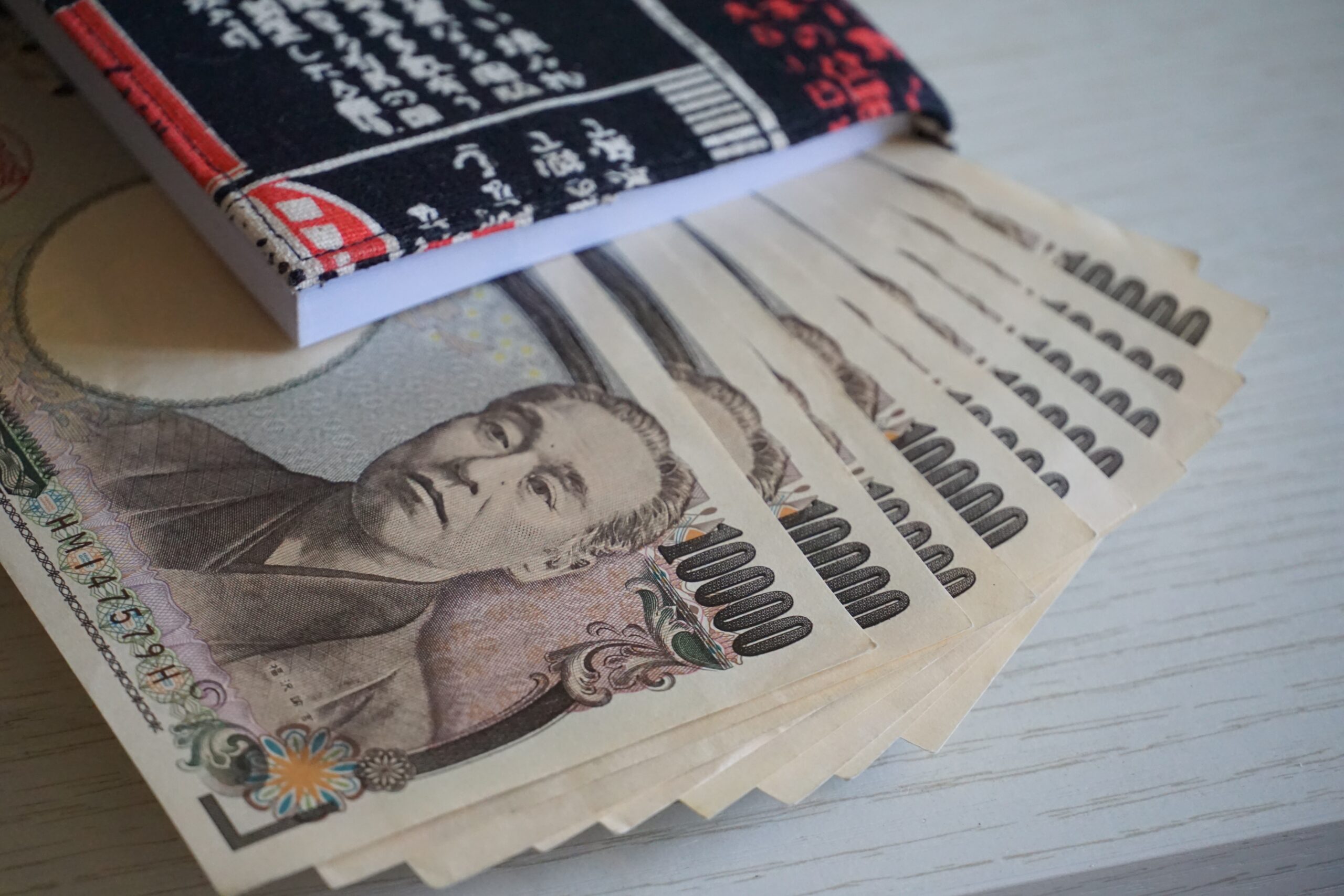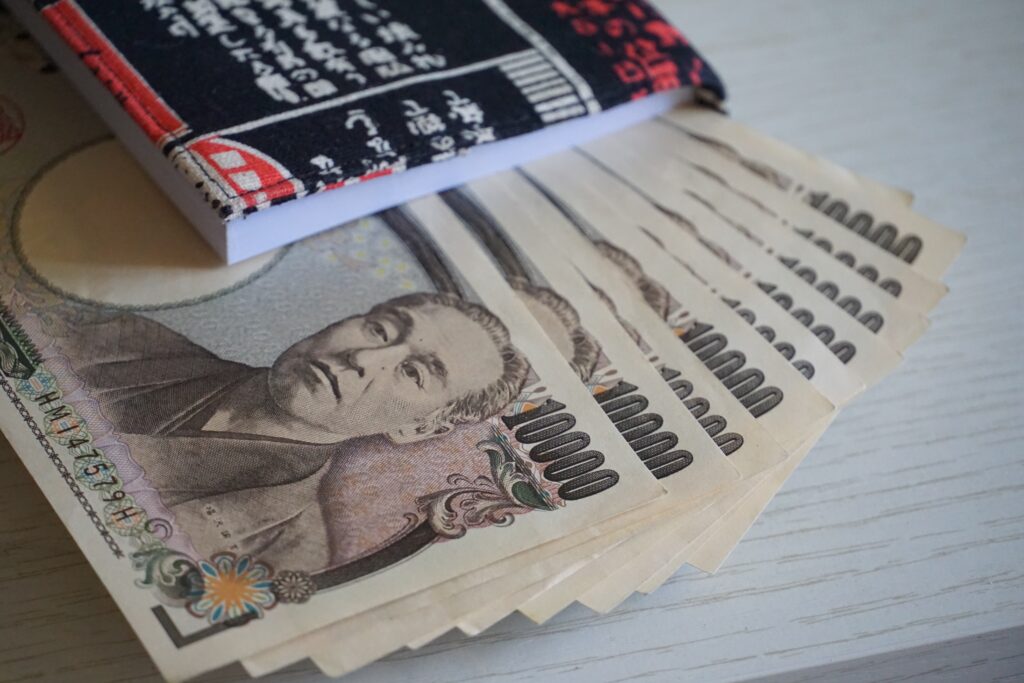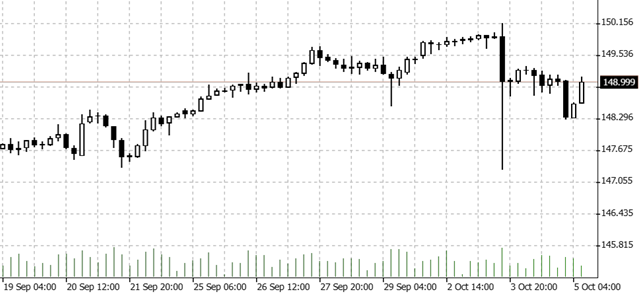

05.10.2023 – Puzzling over a possible Bank of Japan intervention: just now, the consumptive and otherwise rather sluggish yen made some interesting twitches.
After the flare-up of new interest rate fears in the U.S., the shockwaves reached into the forex market – the dollar gained, the yen even cracked the 150 level, which was the lowest since October last year. However, then the violent countermovement. In the four-hour chart of USDJPY, the large swings stand out, strongly deviating from the small candles before.

Source: Bernstein Bank GmbH
How the pictures resemble each other: In September and October of last year, the Bank of Japan intervened when the domestic currency slid to a 32-year low of 151.94 per dollar. According to the financial blog ZeroHedge, the Bank of Japan burned through the equivalent of $65 billion in support purchases at the time – and did so in three steps. The intervention series had been the first since 1998.
No comment in Tokyo
And now? Finance Minister Shunichi Suzuki has so far avoided making a clear statement on whether Japan has intervened again. Speaking to reporters, Suzuki said he did not rule out any option to curb excessive volatility. So much for the verbal intervention.
Looking at official policy and possible means, the Finance Ministry is probably well inclined to intervene, judged Yoshimasa Maruyama, chief economist at SMBC Nikko Securities. And the Bloomberg news agency recently reported that Masato Kanda, a senior official at Japan’s Finance Ministry, was in close contact with officials in the United States. He said both sides agree that excessive movements in the forex market are not welcome.
Flight into gold
An intervention would also be realistic because even the Japanese are saying goodbye to the yen and buying gold – these are flight movements that have so far been seen more in the Turkish lira or the ruble. In any case, the “Financial Times” reported a good two weeks ago that the price of gold per gram in yen has exceeded the mark of 10,000 for the first time. Specifically, the major gold trader Tanaka Kikinzoku reported 10,100 yen. Private households with high cash holdings in particular are apparently stocking up in order to compensate for the loss of purchasing power in the wake of rising inflation.
We are curious to see how the matter continues – and wish successful trades and investments!
________________________________________________________________________________________________________________________________________________
The content of this publication is for general information purposes only. In this context, it is neither an individual investment recommendation or advice nor an offer to purchase or sell securities or other financial products. The content in question and all the information contained therein do not in any way replace individual investor- or investment-oriented advice. No reliable forecast or indication for the future is possible with respect to any presentation or information on the present or past performance of the relevant underlying assets. All information and data presented in this publication are based on reliable sources. However, Bernstein Bank does not guarantee that the information and data contained in this publication is up-to-date, correct and complete. Securities traded on the financial markets are subject to price fluctuations. A contract for difference (CFD) is also a financial instrument with leverage effect. Against this backdrop, CFD trading involves a high risk up to the point of total loss and may not be suitable for all investors. Therefore, make sure that you have fully understood all the correlating risks. If necessary, ask for independent advice. CFDs are complex instruments and are associated with the high risk of losing money quickly because of the leverage effect. 68% of retail investor accounts lose money trading CFD with this provider. You should consider whether you understand how CFD work and whether you can afford to take the high risk of losing your money.7
